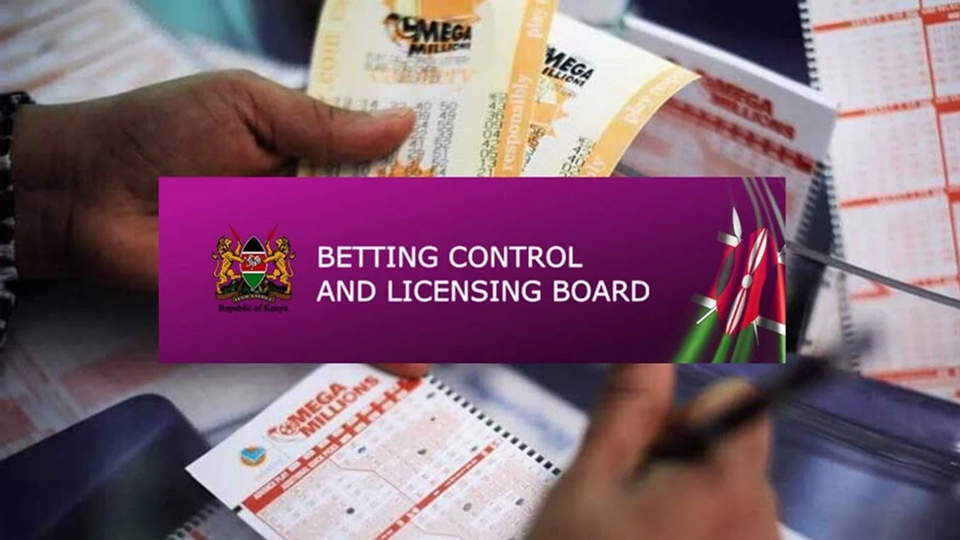Kenya Implements Ban on Celebrity and Influencer Gambling Promotions Amid Regulatory Crackdown
The Betting Control and Licensing Board (BCLB), operating under the Office of the President, has announced a comprehensive ban on the use of celebrities, influencers, and content creators in promoting gambling activities across Kenya. This move marks a significant escalation in the government’s efforts to curb the pervasive influence of gambling advertisements and mitigate their socio-economic impacts, particularly on vulnerable populations such as the youth.
The decision follows a 30-day suspension of all gambling advertisements across television, radio, social media, print media, outdoor billboards, SMS, and email campaigns, which was enacted on April 29, 2025. The temporary blackout was imposed to address concerns over misleading promotions that portrayed gambling as a quick path to wealth, contributing to rising cases of addiction and financial distress. With the ban now lifted, the BCLB has introduced stringent new regulations to govern how gambling advertisements can be presented, placing particular emphasis on restricting celebrity and influencer involvement.
The BCLB’s latest directive prohibits celebrities, influencers, and content creators from endorsing or promoting gambling activities in any form. This measure aims to reduce the appeal of gambling to young audiences, who are often swayed by the glamour and influence of prominent figures in entertainment, sports, and social media. The board highlighted that such endorsements have been particularly effective in normalizing gambling among impressionable demographics, exacerbating issues like addiction and financial ruin.
Additionally, the new regulations impose strict guidelines for gambling advertisements. All promotional content must now be vetted and approved by the Kenya Film Classification Board (KFCB) under the Film and Stage Plays Act. Ads are required to include prominent responsible gambling warnings, constituting at least a third of the advertisement’s content, and must display the operator’s license details and government authorization. To further protect vulnerable communities, gambling advertisements are prohibited near schools, churches, or shopping malls, areas frequented by minors and families.
The BCLB’s actions come amid growing concerns about the societal impact of gambling in Kenya, where the industry has seen rapid growth fueled by widespread smartphone penetration and enthusiasm for sports, particularly football. Studies have shown that a significant portion of Kenyan youth engage in gambling, with some as young as 13 participating in betting activities. The accessibility of mobile betting platforms has made it easier for individuals to engage in gambling, often leading to detrimental outcomes such as debt and mental health challenges.
The government’s crackdown also addresses the issue of misleading advertisements that frame gambling as an investment opportunity, luring individuals into risky financial behaviors. The BCLB emphasized that the new measures are designed to promote responsible gambling and protect citizens from the adverse effects of unchecked marketing practices.
In addition to the ban on celebrity and influencer endorsements, the BCLB has called for the expedited enactment of the Gambling Control Bill, which would grant the regulator enhanced enforcement and supervisory powers. The board has also urged the Communications Authority of Kenya (CA) to block unlicensed foreign gambling websites operating in the country and the Media Council of Kenya (MCK) to introduce updated guidelines to replace outdated programming codes.
A multi-agency task force, comprising representatives from various government bodies, has been established to monitor and enforce these regulations. Non-compliance with the new rules could result in severe penalties, including hefty fines, suspension of operations, or revocation of gambling licenses. The BCLB has signaled that it will take a hardline stance against operators who fail to adhere to the responsible gambling messaging requirements or attempt to circumvent the advertising restrictions.
The ban has sparked varied responses from stakeholders in the gambling industry and beyond. Supporters argue that it is a necessary step to safeguard vulnerable populations and curb the normalization of gambling among the youth. Public health experts and sociologists have long warned about the dangers of gambling addiction, with some linking it to increased instances of financial distress and mental health crises. The prohibition on celebrity endorsements is seen as a critical move to reduce the industry’s appeal to younger audiences.
However, the gambling industry, which employs thousands of Kenyans and contributes significantly to tax revenue, has expressed concerns about the impact of these restrictions. Operators argue that the advertising ban and stringent regulations could lead to reduced visibility and higher customer acquisition costs, potentially affecting their profitability. Some have called for a balanced approach that allows responsible advertising while addressing public health concerns.
Kenya’s decision to ban celebrity and influencer gambling promotions aligns with a global trend of tightening regulations on gambling advertisements. Countries like the United Kingdom, Australia, and several European nations have implemented similar measures to protect consumers from aggressive marketing tactics. The BCLB’s actions signal a commitment to fostering a more responsible gambling environment, prioritizing the well-being of Kenyans over the commercial interests of betting companies.
As the government moves forward with these regulations, the focus will be on enforcement and public education to ensure that the measures achieve their intended impact. For now, the ban on celebrity and influencer endorsements marks a pivotal moment in Kenya’s ongoing efforts to address the challenges posed by the gambling industry, with the hope of creating a safer and more sustainable future for its citizens.


